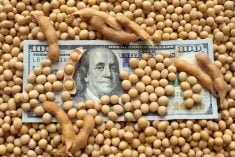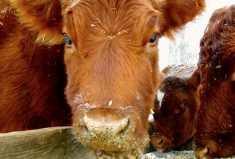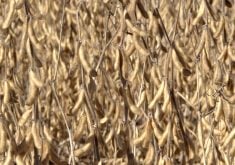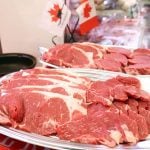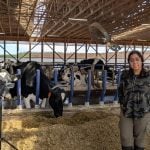Hamburg | Reuters — German pig prices were unchanged this week despite the discovery of the disease African swine fever in farm animals, German animal farmers’ association VEZG said on Wednesday.
German pig prices were the same as last week at 1.42 euros (C$2.10) per kilogram slaughter weight, the VEZG said.
A third case of ASF was confirmed over the weekend in farm pigs in the eastern state of Brandenburg following the first discovery on farms last week.
Previous cases have only been found in wild animals, with 1,267 ASF infections so far in wild boar in the Brandenburg area. Brandenburg borders Poland, where the disease is widespread.
Read Also

Mexico agriculture secretary says still no date for restarting cattle exports to U.S.
Mexican Agriculture Minister Julio Berdegue said on Wednesday that Mexico and the United States have not yet set a date to resume Mexican cattle exports amid an outbreak of the flesh-eating screwworm parasite.
“I think the unchanged pig prices shows that the discovery of ASF on German farms was not really a gravely important event for the market,” said Tim Koch, meat analyst at German market consultancy AMI.
“The farms were in the eastern region of Brandenburg where it has already been found on a large scale in wild animals, so there have not been any significant changes to the restriction zones used to combat the disease.”
The disease was found on small farms and Brandenburg is not a large pig farming area in Germany, he added.
“Germany’s pork exports to third countries, especially China and the other main Asian buyers have been stopped anyway, with exports continuing inside the EU,” he said. “So the international trade picture has not changed but negotiations with China about ending import bans could be longer and more difficult.”
Many countries banned German pork imports in September 2020 after ASF was found in wild boars.
Germany’s domestic pork market is difficult with a lack of demand, Koch said. Restaurants and major events generating meat demand are still not really back to normal with continuing uncertainty about increasing numbers of COVID-19 cases.
— Reporting for Reuters by Michael Hogan.




